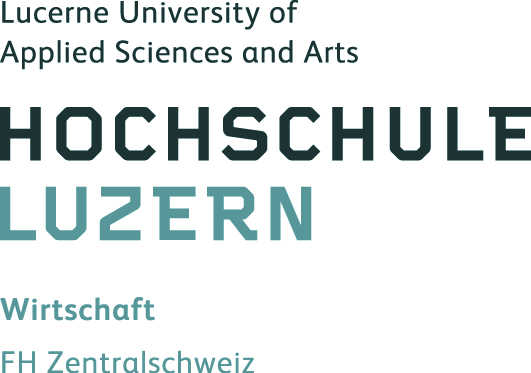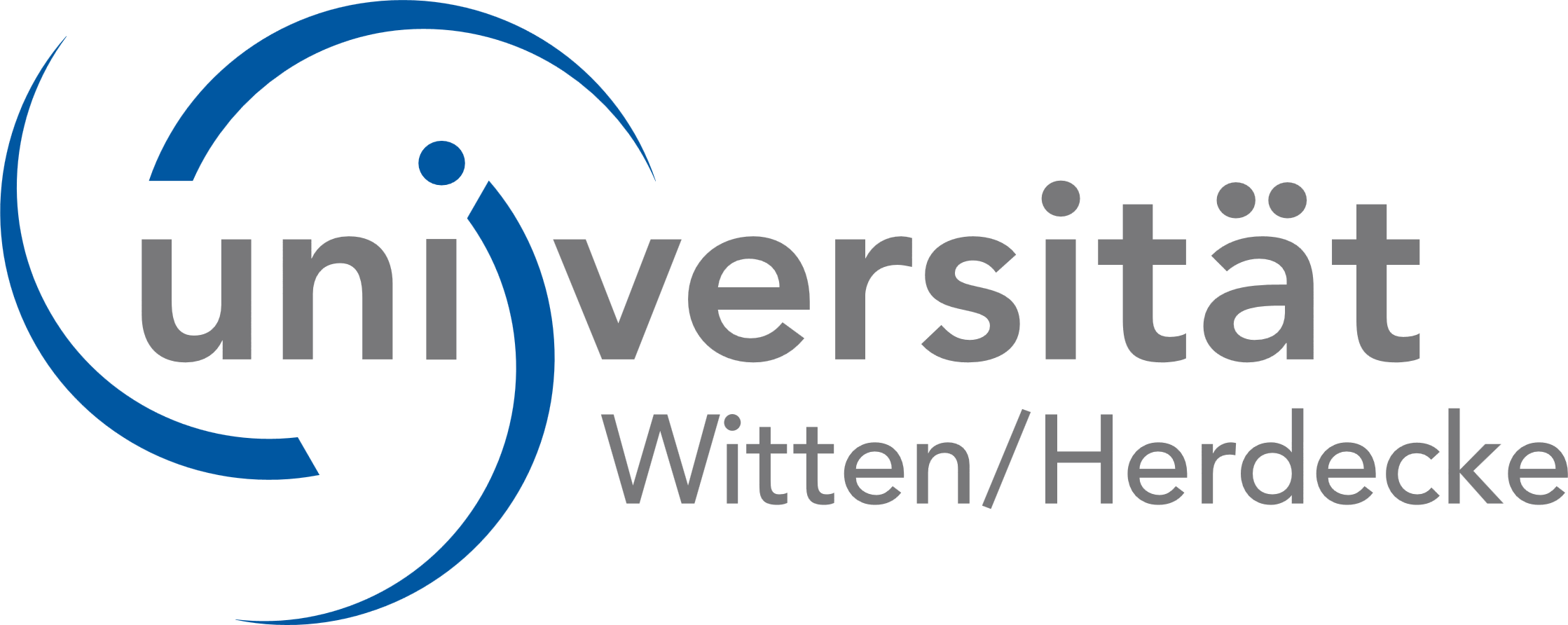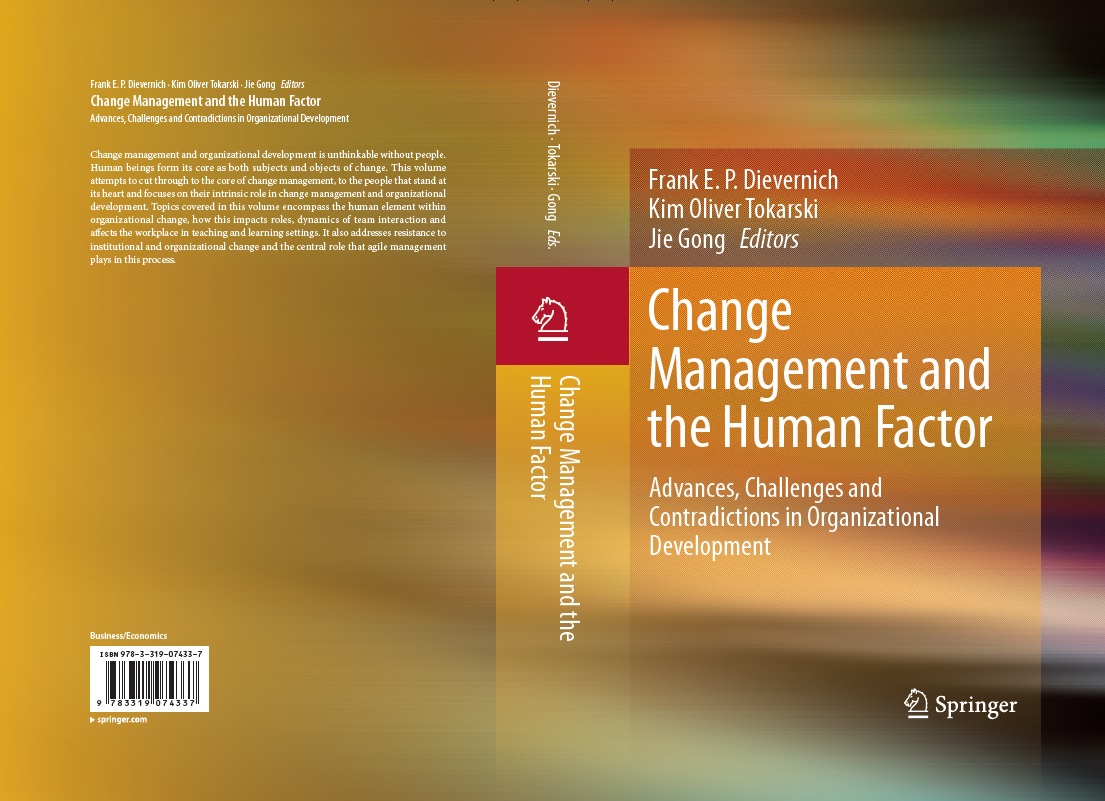|
Lucerne University of Applied Sciences and Arts – Business School

Professor Ruth Alas, Estonian Business School, Estonia
Professor Christopher J. Rees, University of Manchester, UK
and Beijing University of Technology
Professor Dr Frank E.P. Dievernich, Lucerne University of Applied Sciences and Arts – Business School
Professor Dr Rudolf Wimmer, Witten/Herdecke University

We are delighted to issue the announcement for the 9th EIASM colloquium on the subject of Organizational Change and Development (OCD). Previous OCD workshops have taken place in Tallinn, Vilnius, Bucharest, Krakow, Vienna, Malta, Bern, and Ghent. The 9th OCD colloquium is scheduled to take place in Essen, Zeche Zollverein (www.zollverein.de), in September 2014.
As in previous years, the 2014 OCD colloquium is designed to provide delegates with the opportunity to present their work and discuss it in a constructive environment. Thus, the colloquium seeks to bring together international scholars and practitioners with a view to exploring perspectives and insights into the management of OCD. Work presented by delegates at the OCD workshops in previous years has been published in journals such Human Resource Development International, Baltic Journal of Management, Journal of Business Economics and Management, Journal of Organizational Change Management, International Journal of Public Administration, Journal of Business Ethics, and the Estonian Business Review.
The publication of a special issue is planned to mark the occasion of the 9th colloquium. More information will be available in due time.

The academic programme will start early in the morning on September 12 and finish in the afternoon of September 13 at around 5 PM. In the late afternoon of September 11 you are invited to a welcome reception.
Click here for the final schedule.

OCD is rapidly emerging as a subject that is integral to the management of organizations in the 21st century. While the practice of management has, from time immemorial, involved designing, implementing, and managing change interventions, the current scale and pace of societal, economic, and technology-driven change in the global environment highlights the present need for theorists and practitioners to develop their knowledge and understanding of how best to manage organizational change in the workplace. No sector or type of organization is immune from the challenge of devising and implementing effective organizational change and development strategies in today’s highly complex global world economy.
The 9th EIASM Colloquium will focus on the future of change management. In an age when change management has become the norm and an everyday experience in organizations, when one set of reforms is no more than an occasion and stimulus for the next, and when few change management projects are ever brought to a conclusion, the telos of the current dynamics remains unknown. One possible prospect already suggested at the last colloquium in Ghent (2013) is the rediscovery and reinforcement of stability. But has the concept of stability not evolved over time? What then needs to be discovered anew if one inquires into the future of change management? Which theoretical concepts will be put forward, and how will the practitioners’ kit of change management instruments evolve? It also needs to be considered how organizations and societies are developing in order to find an at least tolerable response to the changing face of change management. None of this must ignore the history of change management itself, as it will likely continue to have a substantial impact on its evolution. The time seems to have come for this colloquium to cast a look at the future of its subject. A particular highlight of the proceedings will be a dedicated forum in which the future prospects of practitioners in the field will be challenged by those of their academic peers – and vice versa.
Since its original conception nine years ago, the chairs of this colloquium have sought to garner a wide range of views about the theory and practice of organizational change, that is, a broad access to the topic of organizational change has always been an important and highly appreciated tradition of the colloquium. Thus, while this year’s focus is the future of change management, the event is open to all contributions discussing current trends and specific challenges in the theory and practice of organizational change. As a guideline only, papers are invited primarily, but not exclusively, on the following topics:
- the constraints of current thinking of organizational change
- new approaches to observing and managing change
- societal change and organizational development
- lessons learned from organizational change in public and non-commercial organizations
- new organizational forms and challenges to organizational change
- theoretical and philosophical foundations of management and organizational change
- organizational change in a time of austerity
- the enabling and restricting role of management development in change management
- the contributions of the HRM function to change management interventions
- arts and aesthetics as sources for inspiration and improvement in organizational change
- innovation and the process of change management
- the role of norms, values, and ethical aspects in change management
- entrepreneurship and change management
- the influence of spirituality on change management
- diversity and organizational change and development
- the role of communication in change management
- the psychology underpinning organizational change and development
- the impact of organizational change on employees
- the functions and benefits of resistance to organizational change
- the effect of strategic (re-) alignment on organizational architectures and vice versa
- future organizational structures and their implications for change management
- exhausted / tired organizations and change management.
Guidelines for Submitting Abstracts
Please submit abstracts electronically via the workshop website.
- Submissions must be made in MS Word and Times New Roman 12pt.
- Authors’ names must not appear anywhere on the abstract page.
- The abstract must not exceed 250 words and must use single-spaced formatting with no double spacing between paragraphs.
- The abstract should contain the aims, objectives, and/or questions of the study. These aims, objectives, and/or questions should highlight the relevance of the study for organizational change and development theory and/or practice.
- Do not include any institutional graphics or logos.
- Documents must be tidy and not show any history of editing changes.
- Do not send documents in 'read only' format (as papers need to be anonymized for the review process).
- The cover page should include the title of the proposal and each author’s name, affiliation, address, telephone, fax, and email.
**Abstracts will be double-blind reviewed**
SUBMISSION CLOSED

Submission of abstracts: June 2, 2014
Notification of authors: as of June 10, 2014
Registration for authors: July 14, 2014
Submission of final papers: July 31, 2014


&


We are happy to present in Essen the book Change Management and the Human Factor (Editors: Frank E. P. Dievernich, Kim Oliver Tokarski and Jie Gong) that has it's source in the 2012 EIASM Organisational Change and Development Colloquium.


VENUE
(c_0).jpg)
Zeche Zollverein, Essen (UNESCO World Heritage site) - http://www.zollverein.de/
The plant, built in 1932 in the style of the 'new objectivity', was once the most modern colliery in Europe. Today, the 'Zollverein' is a UNESCO World Heritage site, and a vibrant location for contemporary art, culture, architecture, and creative industries. Visitors are immersed in both the past and present of the Ruhr region and its culture.
Red Dot Design Museum
Gelsenkirchener Strasse 181
45309 Essen
Germany
How to reach the venue: CLICK HERE
ACCOMMODATION
As the venue is connected to the city of Essen via the tram line 107 we recomment that participants stay in the area of the Essen Central Station.
For hotel reservations check: www.booking.com
For information about transportation from Düsseldorf Airport to Essen CLICK HERE.
For information about Essen CLICK HERE.
ONLINE REGISTRATION
The fees include participation to the :
- workshop/conference/seminar
- tutorial documents
- lunches
- the workshop/conference/seminar dinner
- morning and afternoon refreshments
| |
|
For participants affiliated with an institution that is member or associate member of the EIASM's
Academic Council |
290,00 € (VAT Exempt) |
| For participants coming from another academic institution |
375,00 € (VAT Exempt) |
Cancellations made before August 16, 2014 will be reimbursed minus 20% of the total fee. No reimbursement will be possible after that date.
Payments should be made by :
- The following credit cards: Visa or Eurocard/Mastercard/Access

ADMINISTRATION
Ms. Cristina Setyar - EIASM Conference Manager
EIASM -
RUE FOSSÉ AUX LOUPS - 38 - BOX 3 - 1000 BRUSSELS - BELGIUM
Tel: +32 2 226 66 69 - Fax:
Email: setyar@eiasm.be

|






(c_0).jpg)